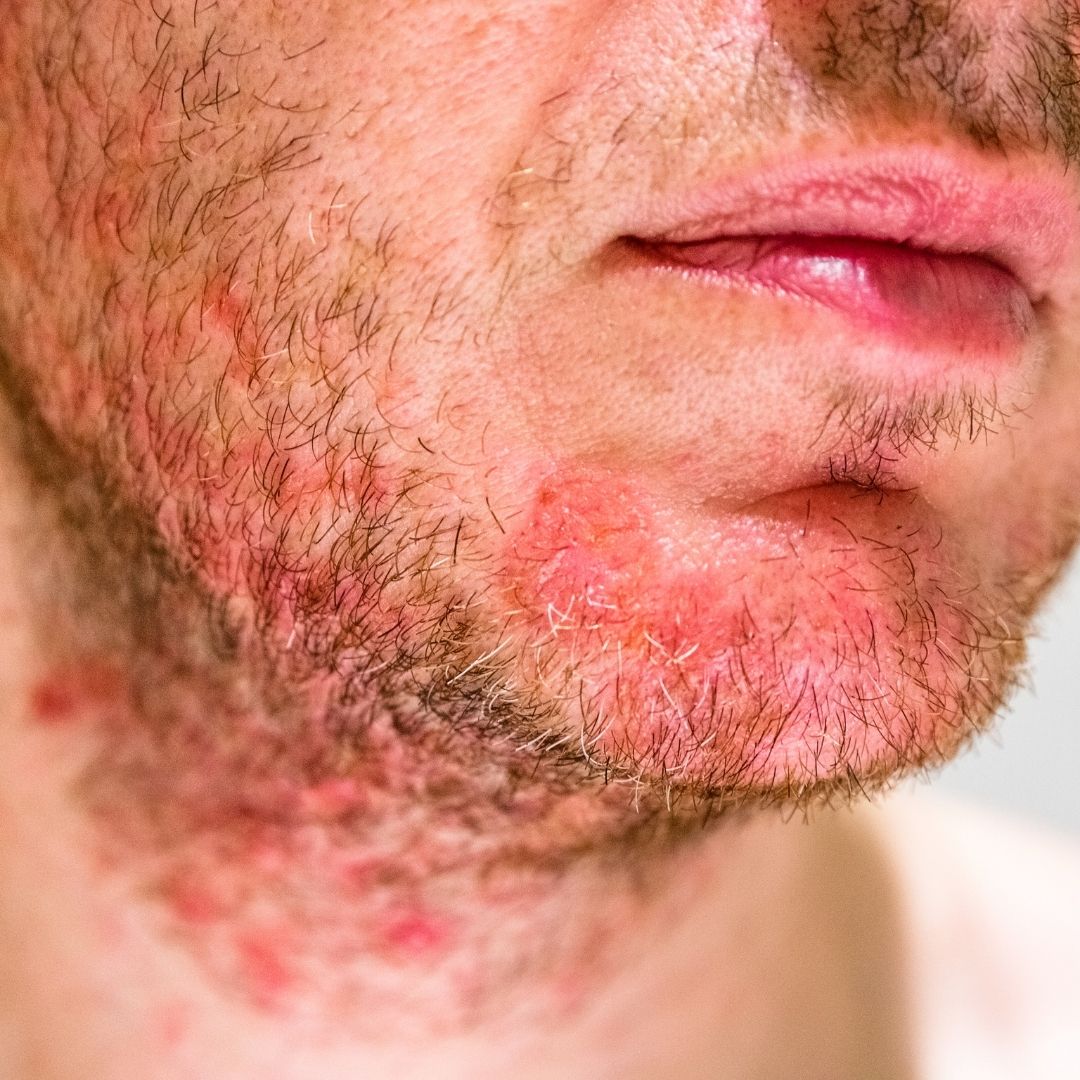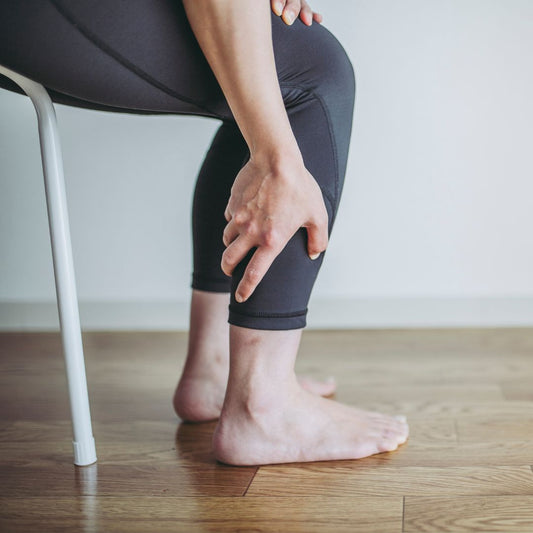As the leaves begin to fall and temps begin to drop, it’s normal for our skin to become dry and start to itch. The cold air can suck out the moisture from the skin causing irritation, however, how do you know if you have a mild skin irritation or something more concerning such as eczema or psoriasis?
The largest organ in the human body, our skin, can have several causes when it comes to rashes, but skin conditions such as eczema and psoriasis both tend to be an overactive immune response. In fact, eczema affects up to 30 million Americans while psoriasis impacts 7 million and neither are contagious. So, what’s the difference?
Eczema
Eczema is a lifelong condition that can first show up as itchy red skin making it hard to pinpoint what is happening to your body. The skin irritation can be bumpy and scaly with leather-like patches on your skin, and if you find that the rash is showing up on your nails, neck, inner elbows, ankles, knees, feet and around your eyes, chances are you’re suffering from eczema.
What causes it?
It can be several factors. Like most skin irritations, it can be an immune response to an allergen or stress that causes your skin to overreact. Eczema is also likely to be a genetic condition. If you have a family history of dermatitis, it’s common for it to be passed down.
Lastly, environment. If you have spent time in an environment with low humidity, it can cause your skin to dry out and become itchy. On the contrary, high heat and humidity can also cause sweating that worsens already irritated skin.
Psoriasis
Similar to eczema, psoriasis is a long-term and chronic condition, but it’s more inflammatory. When experiencing a flare up, your skin will turn red with itchy and silver scaly patches on your knees, elbows, lower back, legs, soles of the feet, scalp and face and palms.

What causes it?
Psoriasis is caused by a faulty immune system that makes skin cells turn over too quickly, but can also be triggered by infections, weather, stress, and reactions to medications.
Which Do You Have?
While the two are similar, it’s important to know that eczema is not a form of psoriasis and cannot turn into psoriasis. They two conditions are different from one another. So, how do you know which irritation you are suffering from? We will differentiate the two below.
Eczema can easily be mistaken for psoriasis, and an easy way to distinguish the difference between the two is that with psoriasis, the red patches tend to be thicker and raised and the rash with eczema can ooze.
The two can also feel different. Eczema can cause such an intense itch that scratching to relief it can result in bleeding. Psoriasis is still itchy but may result in more of a sting or burn. Another difference? Eczema tends to start with children while psoriasis shows up later in life around the age of 15.
How To Treat Eczema and Psoriasis with Forces Of Nature
Eczema Control Remedy
Eczema Control is a homeopathic natural eczema remedy that works on a cellular level to balance your skin’s overactive immune response and help reverse eczema symptoms naturally and without side effects. The soothing essential oils have anti-inflammatory properties which work on a local level to heal damaged skin.
Psoriasis Relief Remedy
Our natural psoriasis treatment contains anti-inflammatory USDA Certified Organic plant extracts that strengthen the system to quickly soothe and relieve psoriasis while working with your body’s natural immunity. Penetrating deep into the skin tissue, our natural psoriasis treatment rejuvenates damaged skin without steroids or side effects making this a safe choice for your body, scalp, and overall health.




